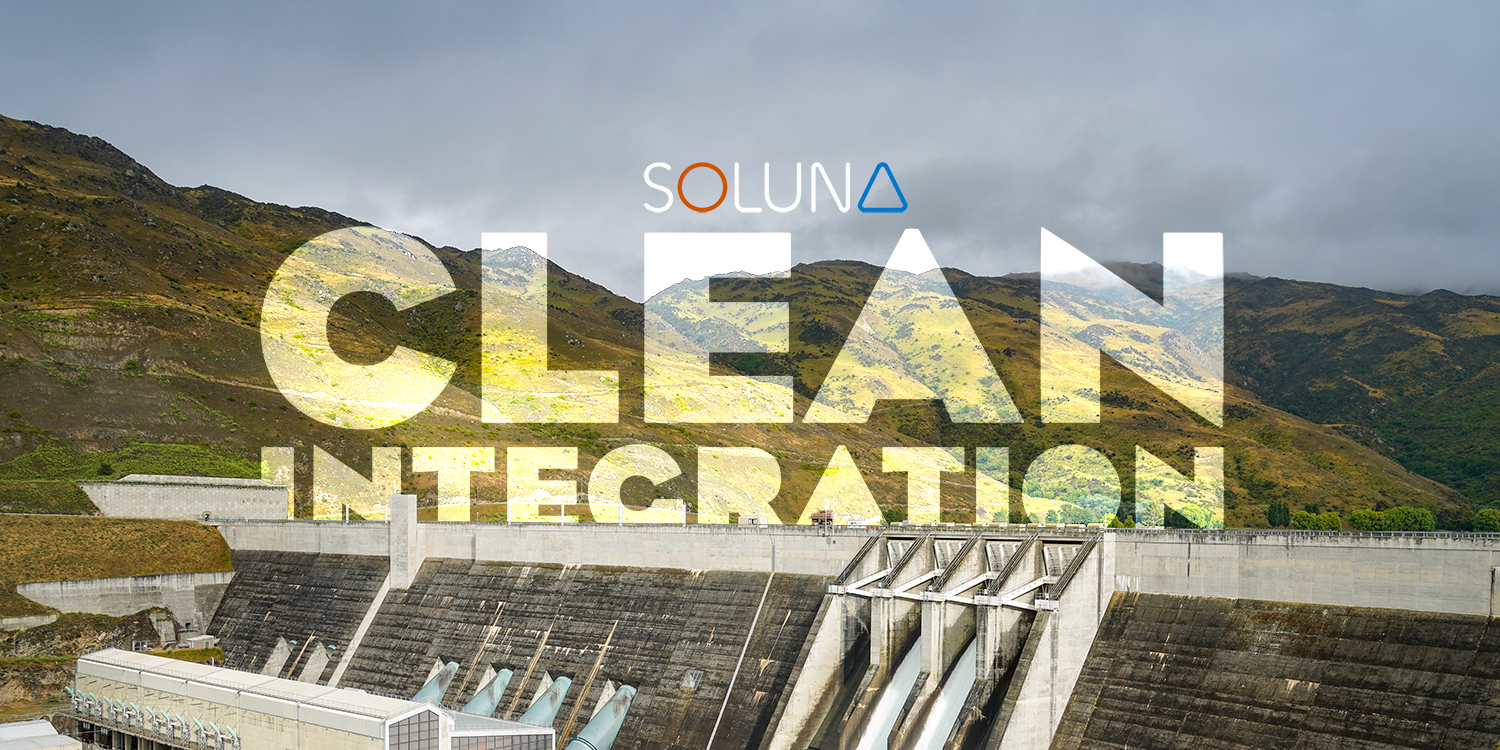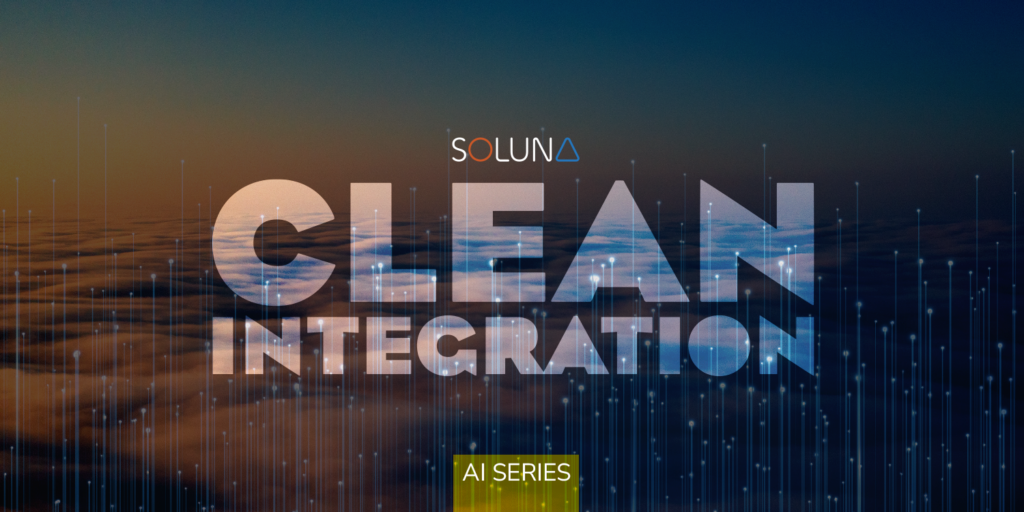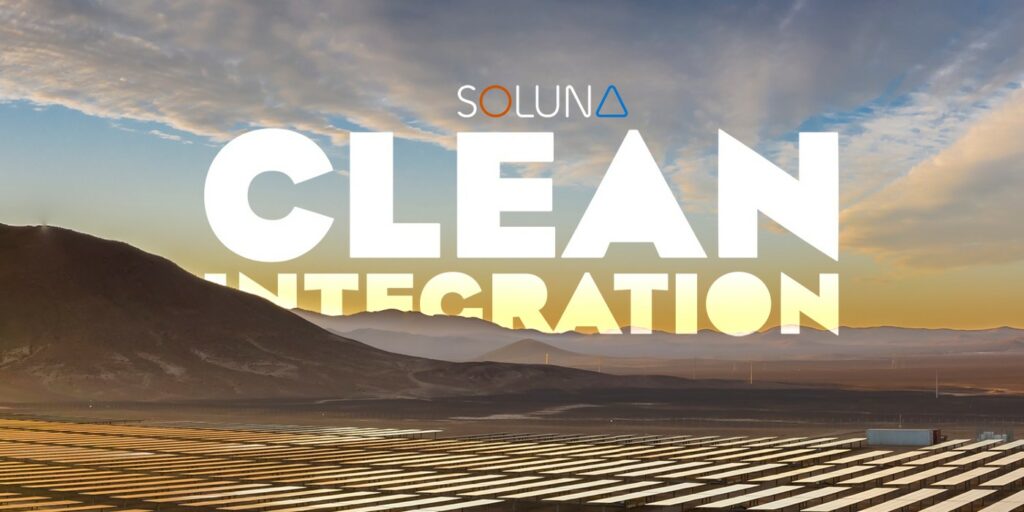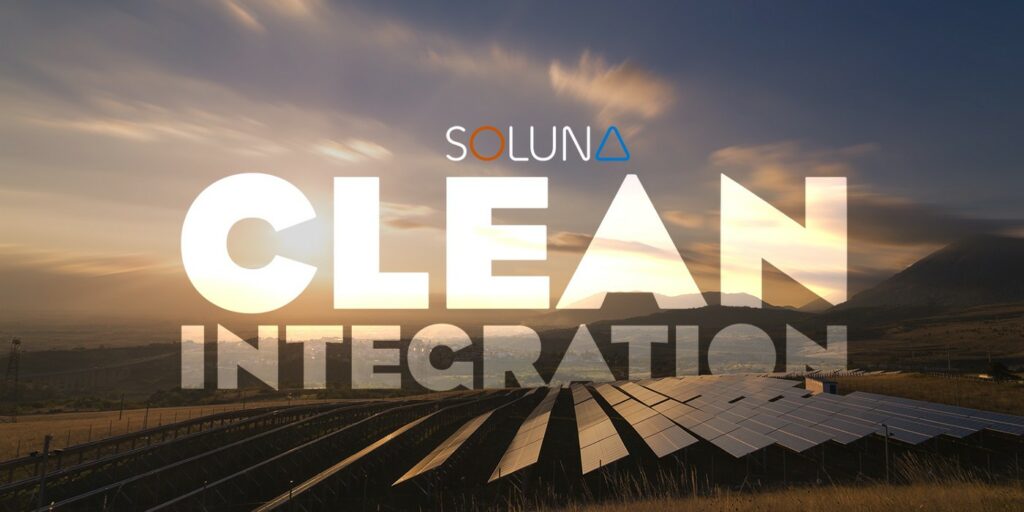Listen now on Apple | Spotify | SimpleCast
Soluna CEO John Belizaire meets with Ben Sorkin, the founder of Flux Marine, a company building 100% electric outboard motors, completely changing the boating experience. The Tesla of boats, if you will.
Ben’s passion for boating started from a young age. He grew up spending summers in upstate New York on Lake George learning about boats and engines. He studied mechanical and aerospace engineering at Princeton University, where he first started working on building an all-electric outboard motor, but it was after Ben gained experience working on batteries at Tesla and designed electric propulsion systems for the Office of Naval Research that he decided to start Flux Marine to bring electric boat motors to the market.
John and Ben sit down to talk about the problems with traditional boating, electrification as a solution, and what this could mean for the future of energy and our environment.
(This transcript has been edited and condensed for print.)
[2:08] Is this your first venture?
Ben Sorkin: This is indeed my first official venture. Growing up, I tried a couple of small different things between shops and selling study guides, but I’d say this is my first big venture.
John Belizaire: So you studied mechanical aerospace engineering at Princeton and through this research and your experience with Tesla, you launched into Flux Marine. Take us through that moment where you realize this is a venture opportunity.
Ben Sorkin: Absolutely. So I grew up spending every summer in upstate New York on Lake George boating and I loved so much about boating, but it was always tough to come to terms with the environmental impact of boating and the constant reliability and maintenance associated with boating. Then in 2015, when I was studying at Princeton, there was a hydrogen fuel cell in one of my labs. And that got me thinking, could we use this as a power source to move boats?
So I connected with a professor, Dr. Dan Steingart, and he suggested that I take a look at batteries first. Dan is probably one of the foremost battery professors in the world. I spent the summer of 2015 in Dan’s lab piecing together a very rudimentary electric outboard system with lithium ion batteries. It was more powerful than what you could buy off the shelves, but it wasn’t significant by any standpoint. That summer, I brought that around in upstate New York and Lake George and in Vermont, showing it off to a couple of people. And the response was overwhelming. People said, “Could I buy this? Is this for sale? When will something like this be available?” That was the moment I realized that this could truly become something to change the industry.
John Belizaire: That’s awesome.
[5:43] How did you make that transition from this might be idea to forming a company?
Ben Sorkin: The research started in 2015, the company itself started around 2018 and everything was, we all went full time in 2020. But I spent a lot of time learning about entrepreneurship at Princeton. They had the Keller Center for Entrepreneurial Activity. So I’d sit in on classes, I’d ask mentors questions. I did a lot of research. I joined, and then my co-founders joined me shortly after. My best friend that I grew up with, Daylin Frantin, was studying finance at Boston University, so he was learning a lot in Boston and brought that in.
And we were all learning different things. And the third co-founder was John Lord, also from Princeton. We spent time just researching and understanding and asking questions and started formulating a business plan and slowly evolved this into this can be a really serious company. This is the path we need to take to move forward. And as the technology matured and as the industry started to mature, everything was perfect in the beginning of 2020 to go full time. Of course, the decision to go full-time and all leave our corporate jobs happened about two weeks before the world shut down.
It’s amazing when you lock people down and you take so many things away, where people shift their focus and for us, it was, the focus was entirely on how do we take this time to emerge from COVID and the lockdown with as much progress as possible. At that point, we were really working out of a garage in Rhode Island with minimal funding, bootstraps, some grants here, some grants there. But we really grinded that entire time. Had a couple of prototypes out with a couple of early customers and that really set us up for kind of future growth and expansion. And then we started scaling a team at the end of 2020. And since then, we’ve grown from three people in a garage to over a dozen employees at a marina office. And this next stage, we’re about to triple, quadruple the team again.
John Belizaire: Wow. That’s fantastic. And congratulations. I also know we are recording just after you’ve closed your series A financing.
Ben Sorkin: It’s extremely exciting and I feel so grateful to be able to broadcast with the world that we just closed on over $15 million for our series A financing, which was led by Ocean Zero and had participation from a lot of other exciting angel investors and venture fund firms.
John Belizaire: Fantastic. So at Soluna, we had to solve the issue of thermodynamics in our buildings. We have facilities that are built out in remote areas. Some of them are hot, some of them are cold, and we have to think through how you move lots and lots of air through buildings at a certain velocity and so forth, and we had to crack code that way.
[9:59] What’s the equivalent in transforming the engine design for a boat? What are some of the things you guys had to figure out?
Ben Sorkin: One of the biggest things that we had to figure out is meeting the operational challenges of boats. One train of thought for electrifying things other than cars is to take components from cars and drop them into everything else. If you take a motor and a battery from a car and put it in a boat, it functions, but it doesn’t work super well. The reason is: if you look at a motor and a battery that’s in an electric car, that system is designed to be able to provide a lot of power under acceleration. Once you’re actually going on the highway, you use not even, maybe a 10th of that power, you’re overcoming rolling resistance and aerodynamic drag are what you’re overcoming at those speeds.
But if you look at a boat — when a boat is up and going continuously, you’re displacing water, which is about a thousand times denser than air. So you need a lot of power a lot of the time. We needed to ensure that we were developing a propulsion system with motors and controllers and batteries that were very well suited for those high continuous operational loads. It was also a thermodynamics problem. It was a lot of heat management and thermal management. And then there was the general challenge of no matter how you look at it, the best batteries were still 50 times less energy dense than gasoline. So what could we do throughout the system to make up for that? So there was a constant focus on efficiency. What can we do to ensure that we take the electrical and chemical energy that’s stored into batteries and translate that into forward momentum of the boat in as efficient a way as possible?
John Belizaire: I’m always fascinated because new technology and new innovative companies are always based on solving one key or one big series of challenges. And once you crack the host, you’ve got potentially a business. But so I want to zoom out a bit and start talking about the role of the marine industry in electricity and in energy. Your stated mission on your website is to build a better boating experience and I want to dive into that experience a bit more.
[12:50] How long does the battery last? What’s the charging process like? Do I save a lot of money buying an electric boat motor versus a gasoline-powered one? How would one think about that and how does it tie to delivering a better boating experience?
Ben Sorkin: People boat for so many different reasons, but at the end of the day, technology empowers a lot of boaters to be able to have the experience that they want to have. Just switching to electric doesn’t necessarily always create a better boating experience. We’ve always taken the approach that electric is a way for us to create a better boating experience, but that also requires a lot of technology development past just the use of using electric. So we really try to take a holistic approach to combining the use of electric propulsion and the rest of the system to curate that boating experience. And when we talk about the boating experience and how we make it better, there are different things that people desire.
On one hand, one of the great things about electricity in our systems is obviously no tailpipe emissions, no fumes. And oftentimes if you start up a boat or you’re traveling in front or behind or around a boat, you’ll often smell the fumes from the engine and that just becomes a part of boating. Noise is also a factor. It’s exciting and it’s interesting to be able to be cruising at 30 knots on a boat and be able to have a very quiet, normal conversation. And all you really hear is the wind and the water. That’s a really cool part of the experience. Then you start to get into some of the operational parts of the experience. Of course, people joke about boats, it’s a hole in the water you throw money into. And we all do that because we love boating.
But at the end of the day, gas is always more expensive. When you’re out on the water, fueling up can be a hassle. There are many times up on Lake George where we looked at the fuel tank and said, oh, we need to go get gas. And now it’s a 10 minute trip to the gas station. You wait in line for an hour to get gas. You sit there and pump for 10, 15 minutes, and then you go back out and you just burn a significant amount of time.
So one of the things that electric offers is the ability to, most of the time, fill up or charge wherever you keep your boat. So the way we’ve been boating recently with the electric boats is whenever we pull into the dock slip, we plug it right into the power pedestal or outlet that’s right there. And every time we want to go out, we start with a full charge and that’s more than enough for a full day of boating.
There was one time, a couple of summers ago, when it was about 5:30 PM, and I wanted to go on the jet ski with a friend. We had a jet ski in upstate New York, and there wasn’t enough gas to take the jet ski out and the gas station had closed. There the boat was, sitting at the dock next to an outlet and I just thought to myself, when I have an electric boat one day, this will be so much simpler because it’ll just be plugged in and be ready to go whenever I want to use it. So it’s all of these things that contribute to the ability to create a better boating experience.
[16:32] Have you looked at the marine industry’s effect on climate and the amount of energy it uses from a gas perspective and emissions? Any data or insights you can share with our listeners on that?
Ben Sorkin: Absolutely. There’s obviously the global shipping industry and its effect on the climate, which is well-documented. The impact of smaller boats, recreational and small commercial ones, is not as well documented. But we’ve estimated that at least, probably somewhere in the neighborhood of two to four billion gallons are used for recreational boats every year. And that equates to anywhere from 30 to 100 megatons of CO2 emissions. So not necessarily gigaton level, but it’s still significant on the megaton side of things.
Beyond that though, our outboard engines don’t have catalytic converters, which were acquired in cars 40 years ago. And catalytic converters essentially help trap the particulate matter, the NOx, the Sox, PM 2.5, a lot of the things that are cancer-causing and also have higher global warming potential than carbon dioxide. So taking one boat off the water or transitioning one boat to electric can almost be the equivalent of 150 cars, as far as particulate matter emissions.
John Belizaire: Okay, let’s talk about other products. What you’re effectively doing is greening an end user or consumer product, like a boat or a boat motor, or boat engine, and that’s helping to contribute to the clean energy transition.
[25:03] What do you see as the biggest opportunities beyond boating? What are the places we should try to do what you’re doing, what Flux Marine is doing?
Ben Sorkin: Yeah. I think an interesting thing that I’ve heard before and that has resonated with me is focusing on megaton level issues. So we see a lot of people and a lot of big, huge funds focused on reducing gigaton level emissions. And for reference, I think a gigaton, that’s more than the entire CO2 output of the entire United States and everything that goes on inside it. When everyone’s focused on the gigaton level issues, I think a lot of the megaton level issues are missed out. We need to continue to identify the megaton level issues and continue to find and fund entrepreneurs that are building solutions for the megaton issues. Because if we have thousands of people solving megaton problems, we quickly reach gigaton scale.
Anywhere where emissions are being used I think is a great opportunity for electrification. Some people talk about, well, if everything went electric tomorrow, we couldn’t sustain that on the grid. And I understand that argument, it’s not going to happen overnight. But as consumer demand continues to trend upward, the grid and renewable energy sources will also continue to trend upwards. That’s why I think it’s so important to focus on those megaton technology solutions and really focus on electrifying as many things as possible.
John Belizaire: I love that. I would agree with the concept that lots of little improvements can add up to very large giga-level improvements, and that’s a very good point. I want to ask you how your experience to date has shaped your perspective on renewable energy. I think you’ve touched on that just now.
[27:46] Any other ideas or thoughts about renewable energy sparked from your experience as an entrepreneur?
Ben Sorkin: I think there are a lot of pushes and pulls for renewable energy. And I think there’s a very intriguing ecosystem in terms of what dictates which technologies make it mainstream and everybody has their own role within those ecosystems. Some people ask me, well, what’s your number one pitch for selling outboards, electric outboards? And the answer is not sustainability or an environmentally friendly product because people generally do not want to compromise performance and comfort for sustainability.
I see both sides of the equation because I grew up boating. I love the exciting parts about boating. I don’t really want to get a slow boat that’s electric, but I also don’t want to use something that’s not sustainable. Quickly, this feeling of responsibility falls into the hands of a lot of the innovators of the world. How do we take clean technologies and how do we transform them and package them into something that provides a superior solution to the consumer?
So my goal as an innovator is not to provide a sustainable option for a consumer. My goal is to ensure that I can create the best option that is sustainable so the consumer doesn’t even have to make a choice of whether I pick sustainable or unsustainable. And it’s that interplay and that power that’s in the hands of the innovators that will help drive the consumer decisions. And then as consumer decisions are driven and everyone moves towards the use of sustainable products, then the whole other side, the grid, and the power generation side is essentially forced to follow.
John Belizaire: Right. I get what you’re saying. So if I play that back, the challenge with getting consumers excited about the transition to electric products is if they feel like they’re losing something in the process. People have an aversion to loss. If it’s an inferior product, they might as well stay with their fossil fuel-based product. But if they can get a better product at about the same price, they’ll be more inclined to go get that better product. And the sustainability aspect of it is actually irrelevant to some extent. It’s just so much better.
I mean, I’ve seen a lot of people shift to Tesla cars and other types of electric vehicles, because they’re like, wow, this a really nice car compared to what else is out there in the legacy fuel-powered vehicles. I love that. So Flux Marine is a clean tech company now. You’re in the marine business, but you’re also clean tech. Two things.
[30:57] Do you see other competitors entering the space alongside you and going after this market? Is it a very big market? And two, what advice would you give for other entrepreneurs jumping into the clean tech space?
Ben Sorkin: So as far as other competitors jumping into the electric marine space, absolutely. There are a lot of companies popping up. There are some companies that have been around for a while, set some trends, and it is without a doubt a large market. I don’t necessarily see it as one clear winner and everyone else loses. I think there are going to be a handful of companies that are able to make a tremendous impact in the space. And I also think there are a lot of companies that’ll be super successful in a particular niche. There are so many different types of boats and boating applications that there truly is no such thing as a one size fits all. So I’m often encouraged as I see other companies get to market, get funding, do technology demonstrations because I know it’s going to take more than just Flux Marine to electrify the marine industry.
John Belizaire: Ben, thanks so much for taking the time to introduce us to your new venture Flux Marine, focusing on electrifying the marine industry. I wish you the very best my friend. It’s going to be a fantastic journey and super exciting. I can’t wait to get on a boat that’s powered by your outboard motor.
Ben Sorkin: Thank you, John. I really appreciate the opportunity to talk about Flux Marine and the greater picture around sustainability.




